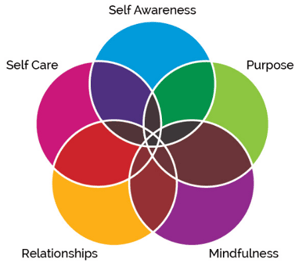 There is no shortage of angst-inducing news these days: natural disasters, economic woes, political unrest. Add to this backdrop, stresses in our personal lives, layoffs, illness, money woes, temper tantrums and traffic jams—it is clear that stressful situations are constant and inevitable.
There is no shortage of angst-inducing news these days: natural disasters, economic woes, political unrest. Add to this backdrop, stresses in our personal lives, layoffs, illness, money woes, temper tantrums and traffic jams—it is clear that stressful situations are constant and inevitable.
Just as serious as the stressors themselves are the adverse effects stress can have on your emotional and physical health. Many well-respected studies link stress to heart disease and stroke—the number one and number three causes of death, respectively, in the United States. Stress is also implicated in a host of other ailments such as depression, anxiety, chronic lower respiratory diseases, asthma flare-ups, rheumatoid arthritis and gastrointestinal problems.
Now, more than ever, resilience is so important.
Resilience is “our ability to bounce back from the stresses of life. It’s not about avoiding the stress, but learning to thrive within the stress.” We all experience stress—the difference is in those who choose to face it head on and not let it get the best of them, in other words, be resilient.
Resilience is made up of five pillars: self-awareness, mindfulness, self-care, positive relationships and purpose. By working to strengthen these five pillars, we are becoming more resilient, and as a result, we are much more equipped to manage the stress in our lives.
Five Pillars of Resilience
Self-awareness is having conscious knowledge of your own personality, including strengths, weaknesses, emotions and motivations. It also allows us to understand how those around us perceive us.
Mindfulness is our ability to be fully present, aware of where we are, what we are doing, and not overly reactive or overwhelmed by what is going on around us. Every time you bring awareness to what you are experiencing through your senses you are practicing mindfulness.
Self-care looks different for everyone. It is the practice of taking action to maintain or improve our health. It is up to us to make an intentional effort to practice self-care.
Positive relationships are exactly as it sounds. Healthy, positive relationships are those people in our lives who support and care for us and we care for them.
Purpose helps us to shape our mindset and attitude towards others and towards our experiences. It allows us to recognize that we belong or serve something bigger than ourselves. We can find purpose in our faith, family, a political party or being a part of a community organization.
Maintaining these skills takes practice; however, being able to use these five pillars of resilience can reframe our thinking so we see ourselves and the world around us in new ways. Taking this holistic approach to resilience will not only help us to manage the stress in our daily lives better but can positively impact our overall well being in a significant way.
We Can Help
Your VITAL WorkLife EAP offers a confidential set of resources available to you and your family. This includes in-the-moment behavioral health support, available 24/7, face-to-face or virtual counseling sessions and much more. Access these resources by calling 800.383.1908 or through your VITAL WorkLife App.
If you’re interested in learning more about our top-tier Employee Assistance Program (EAP) or other solutions that can support well being in your organization, contact us online or call us at 800.383.1908.
Sources:https://www.health.harvard.edu/healthbeat/10-simple-steps-to-help-destress
https://www.bouncebackproject.org/resilience/
mindful.org


